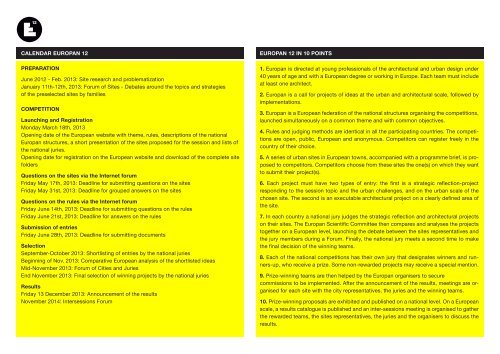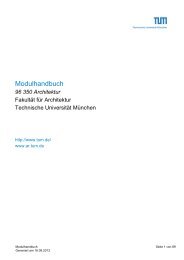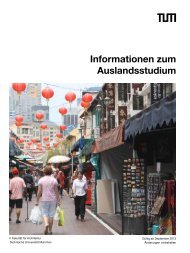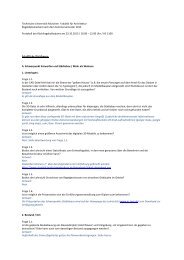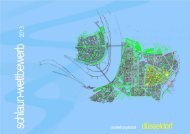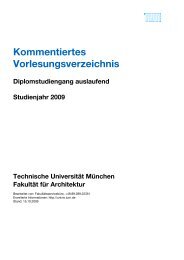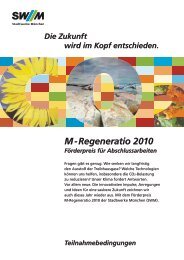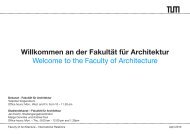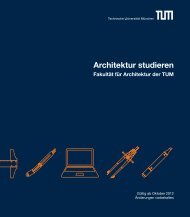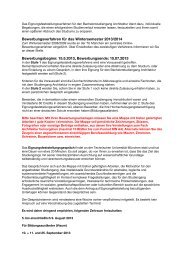europan 12 sites 16 participating countries contacts competition ...
europan 12 sites 16 participating countries contacts competition ...
europan 12 sites 16 participating countries contacts competition ...
Create successful ePaper yourself
Turn your PDF publications into a flip-book with our unique Google optimized e-Paper software.
CALENDAR EUROPAN <strong>12</strong> EUROPAN <strong>12</strong> IN 10 POINTS<br />
PREPARATION<br />
June 20<strong>12</strong> - Feb. 2013: Site research and problematization<br />
January 11th-<strong>12</strong>th, 2013: Forum of Sites - Debates around the topics and strategies<br />
of the preselected <strong>sites</strong> by families<br />
COMPETITION<br />
Launching and Registration<br />
Monday March 18th, 2013<br />
Opening date of the European website with theme, rules, descriptions of the national<br />
Europan structures, a short presentation of the <strong>sites</strong> proposed for the session and lists of<br />
the national juries.<br />
Opening date for registration on the European website and download of the complete site<br />
folders<br />
Questions on the <strong>sites</strong> via the Internet forum<br />
Friday May 17th, 2013: Deadline for submitting questions on the <strong>sites</strong><br />
Friday May 31st, 2013: Deadline for grouped answers on the <strong>sites</strong><br />
Questions on the rules via the Internet forum<br />
Friday June 14th, 2013: Deadline for submitting questions on the rules<br />
Friday June 21st, 2013: Deadline for answers on the rules<br />
Submission of entries<br />
Friday June 28th, 2013: Deadline for submitting documents<br />
Selection<br />
September-October 2013: Shortlisting of entries by the national juries<br />
Beginning of Nov. 2013: Comparative European analysis of the shortlisted ideas<br />
Mid-November 2013: Forum of Cities and Juries<br />
End November 2013: Final selection of winning projects by the national juries<br />
Results<br />
Friday 13 December 2013: Announcement of the results<br />
November 2014: Intersessions Forum<br />
1. Europan is directed at young professionals of the architectural and urban design under<br />
40 years of age and with a European degree or working in Europe. Each team must include<br />
at least one architect.<br />
2. Europan is a call for projects of ideas at the urban and architectural scale, followed by<br />
implementations.<br />
3. Europan is a European federation of the national structures organising the <strong>competition</strong>s,<br />
launched simultaneously on a common theme and with common objectives.<br />
4. Rules and judging methods are identical in all the <strong>participating</strong> <strong>countries</strong>. The <strong>competition</strong>s<br />
are open, public, European and anonymous. Competitors can register freely in the<br />
country of their choice.<br />
5. A series of urban <strong>sites</strong> in European towns, accompanied with a programme brief, is proposed<br />
to competitors. Competitors choose from these <strong>sites</strong> the one(s) on which they want<br />
to submit their project(s).<br />
6. Each project must have two types of entry: the first is a strategic reflection-project<br />
responding to the session topic and the urban challenges, and on the urban scale of the<br />
chosen site. The second is an executable architectural project on a clearly defined area of<br />
the site.<br />
7. In each country a national jury judges the strategic reflection and architectural projects<br />
on their <strong>sites</strong>. The Europan Scientific Committee then compares and analyses the projects<br />
together on a European level, launching the debate between the <strong>sites</strong> representatives and<br />
the jury members during a Forum. Finally, the national jury meets a second time to make<br />
the final decision of the winning teams.<br />
8. Each of the national <strong>competition</strong>s has their own jury that designates winners and runners-up,<br />
who receive a prize. Some non-rewarded projects may receive a special mention.<br />
9. Prize-winning teams are then helped by the Europan organisers to secure<br />
commissions to be implemented. After the announcement of the results, meetings are organised<br />
for each site with the city representatives, the juries and the winning teams.<br />
10. Prize-winning proposals are exhibited and published on a national level. On a European<br />
scale, a results catalogue is published and an inter-sessions meeting is organised to gather<br />
the rewarded teams, the <strong>sites</strong> representatives, the juries and the organisers to discuss the<br />
results.


